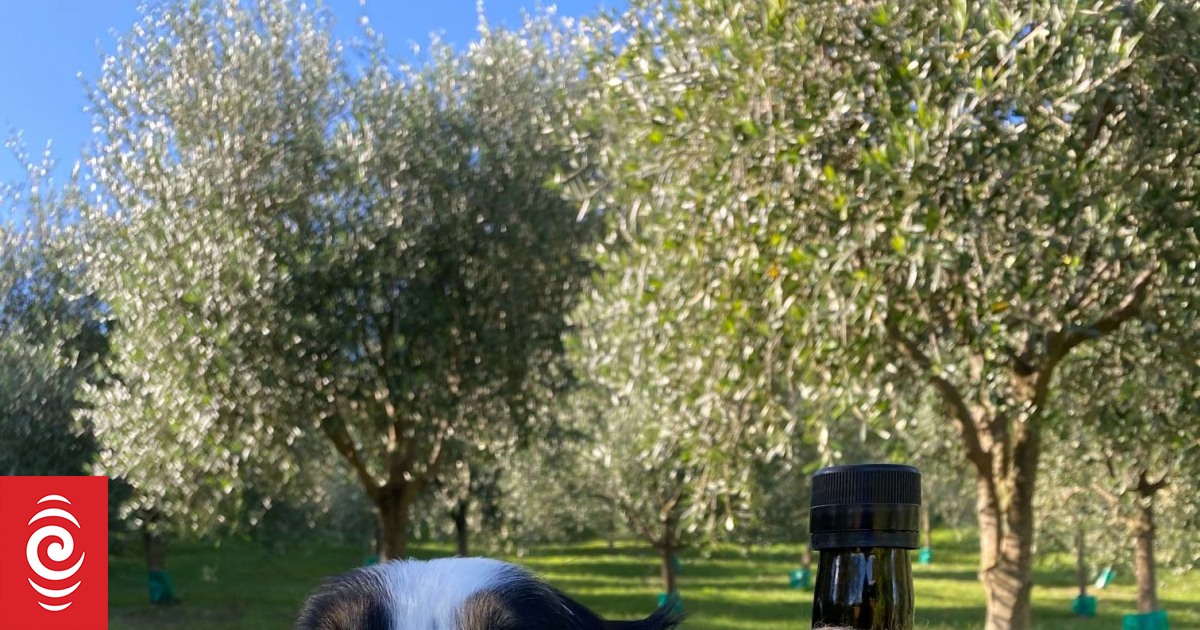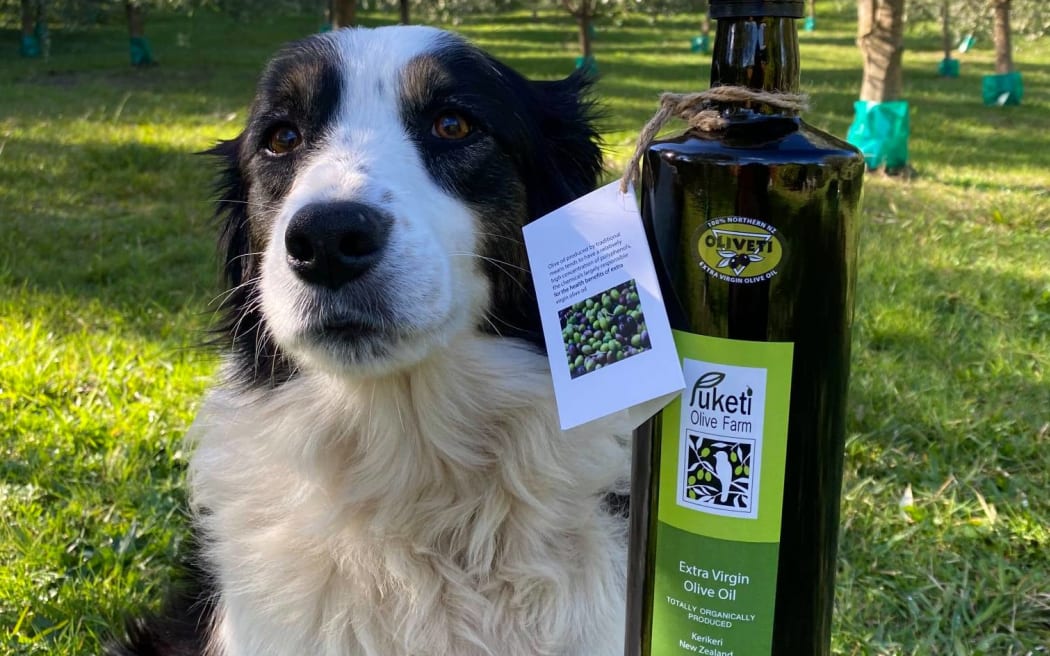
Puketi Olive Farm’s mascot and representative, Sky the border collie.
Photo: Supplied
On the banks of the Kerikeri River, Puketi Olive Farm rests.
It’s here where retired doctor, Peter Crelinsten, is cultivating not only the oil from the olives but the health benefits too.
Peter’s connection with olives dates back to the 1990s when he resided on the Maltese island of Gozo, in the Mediterranean.
As he walks through his small grove of 180 trees with Country Life, just outside of Kerikeri in the Far North, he shares he first fell in love with olive trees after learning the plant’s history, all while renovating a 500-year-old collapsed farmhouse on the island of Gozo.
“We first started using olives to feed ourselves probably about 7000 BC or 9000 years ago. And that’s documented from carbon dating of seeds and pits in Palestine, Israel and Jordan.
“It’s a fascinating tree. It’s been around a long time. It’s the very first tree we actually harvested a fruit from. The second was the fig tree and the third was the pomegranate. So those were the first three fruits that humans started consuming.”
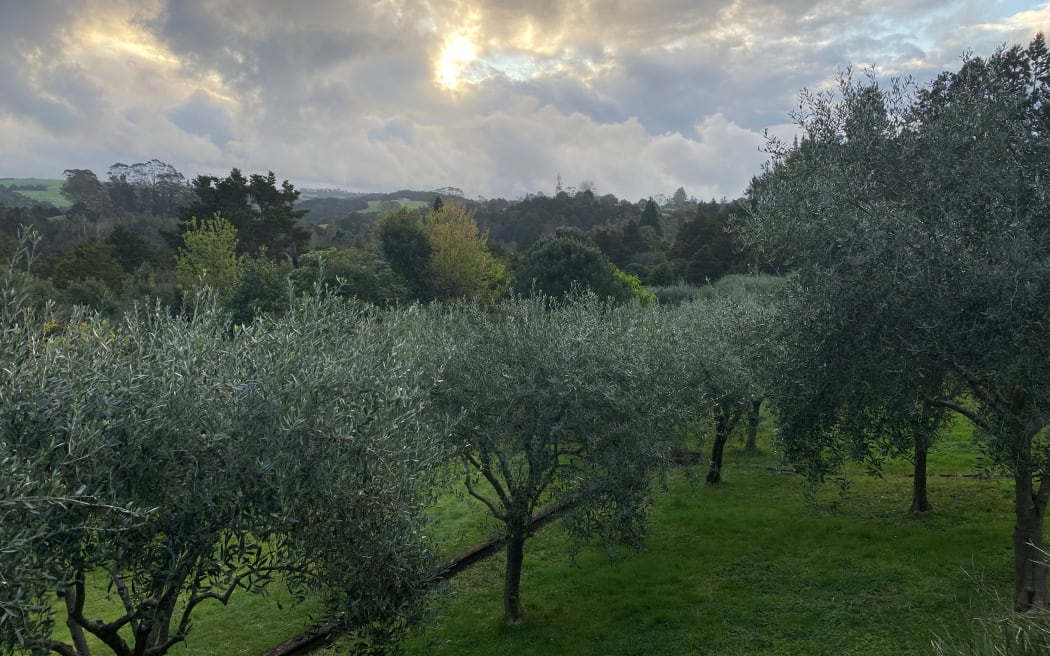
The olive grove at Puekti Olive Farm.
Photo: RNZ/Leah Tebbutt
He continues that the island and neighbouring states had their trees destroyed through various past conflicts, hundreds of years ago.
So Peter then started planting trees on the island himself.
“If you would have Googled the island of Gozo in the early 2000s there was one green patch on the island.
“That was our olive grove. I think we had the largest grove on the island with 100 trees.”
So how did Peter find his way to New Zealand?
Having worked in Russell, in the Bay of Islands, as the doctor during the eighties Peter says New Zealand called him back.
“This was the area of New Zealand I was familiar with. And so we moved back here in 2011 and planted all the trees again.”
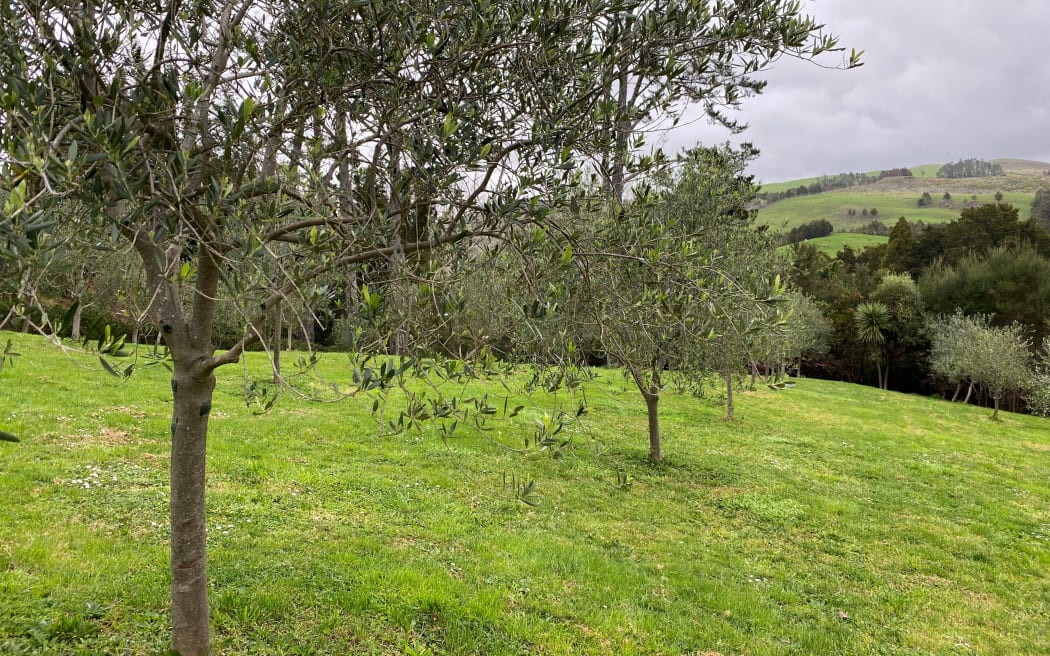
There are 180 trees at Puketi Olive Farm
Photo: RNZ/Leah Tebbutt
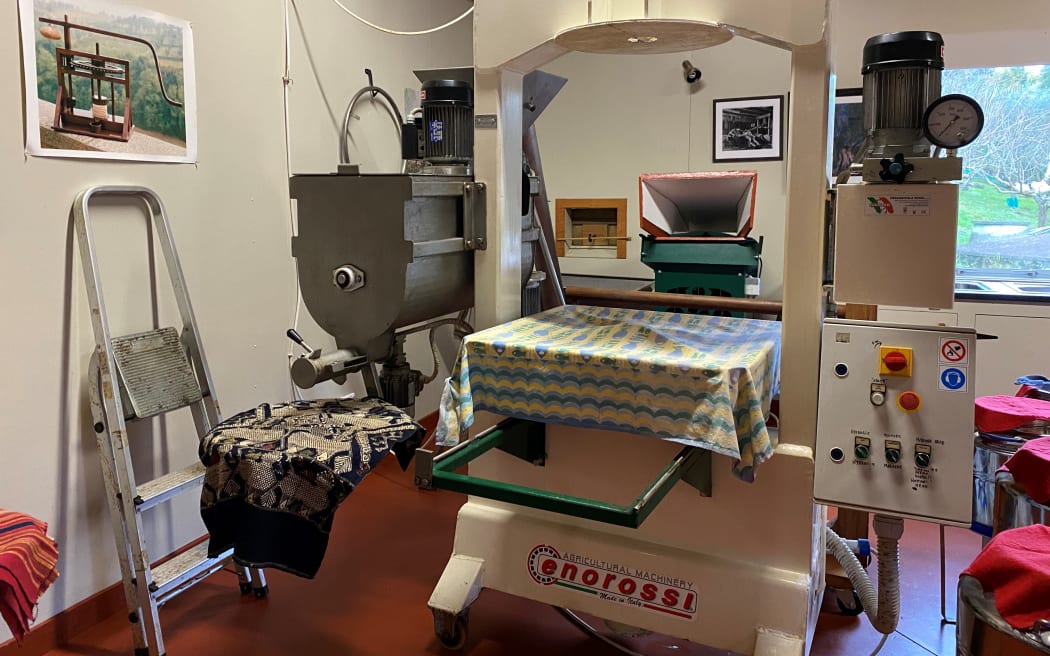
Peter says he may have over-romanticised the traditional press as its not time-efficient.
Photo: RNZ/Leah Tebbutt
It’s the health benefits that drive Peter’s mission. He says extra-virgin olive oil contains a group of compounds known as polyphenols, which contribute to its health benefits.
Peter explains the health advantages become particularly significant when the polyphenol levels are above 250 mg per litre. This year, his oil boasts a polyphenol level of 425 mg per litre. The year before it was 543 mg per litre.
Peter emphasises the importance of early harvesting, explaining, “As the olives mature on the trees, the oil content goes up. But as the oil matures, the polyphenol levels go down.”
Peter’s strategy is to prioritise the health of the olive oil over quantity, harvesting early to maximise the PolyPhenol content.
Additionally, he also stresses the importance of pressing the olives quickly after harvesting.
“The nanosecond, the olives are off the olive trees, they start oxidising. One of the properties [of polyphenols] are antioxidants and so when oxidation starts, the polyphenols in the oil are activated to counter oxidation, so they get used.”
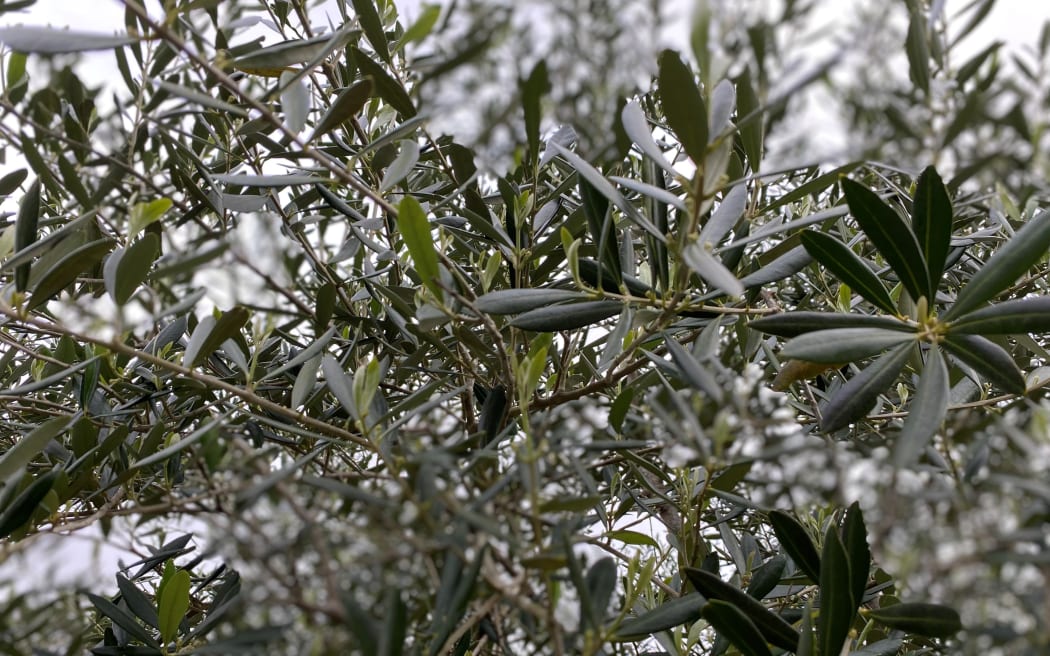
Olive trees at Puketi are yet to produce a bumper crop.
Photo: RNZ/Leah Tebbutt
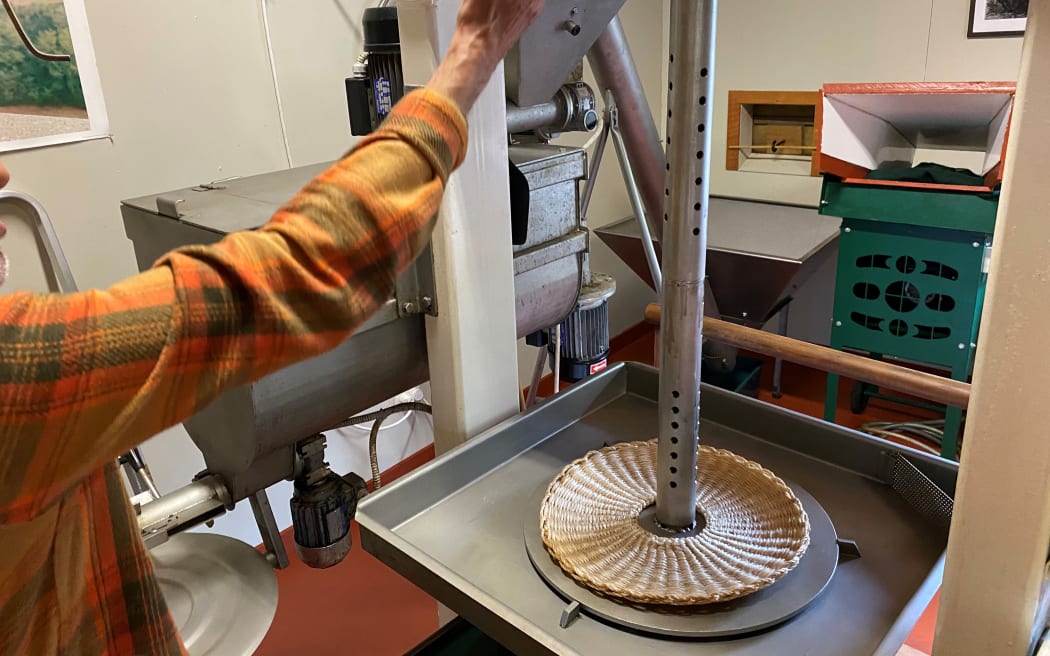
Olives are pressed within three to five hours after being picked in this traditional press.
Photo: RNZ/Leah Tebbutt
With all the above achieved in the optimum time frame, Peter then says he will send a sample to the World Olive Centre for Health, located in Athens.
“Unfortunately, we can’t get the polyphenol levels measured in New Zealand. There’s not a lab in New Zealand that will measure polyphenol levels in olive oil which is very frustrating.”
There, in Greece, the non-profit organisation tests the oil and certifies it if a health claim is present.
Sitting neatly on the wall in his olive press room is an array of certificates from the past decade of creating and harvesting oil. Some are certificates of analysis detailing the health claims.
These include; anti-inflammatory, antioxidant, cardioprotective and neuroprotective activities.
“What you just read consumes me,” Peter says.
Peter’s background in medicine fuels his interest in the health benefits of olive oil. One polyphenol, in particular, has captured his attention – oleocanthal.
Peter says, oleocanthal possesses significant anti-inflammatory properties, which are of great interest in the medical field.
“Lots of diseases are related to chronic inflammation in the body. Everyone would think of arthritis, but even coronary artery disease, to a significant extent, is a chronic inflammatory disease of the coronary arteries.
“We have excellent medicines to counter inflammation in the body, but there’s not one of them that doesn’t have side effects. Whereas the polyphenyl oleocanthal has significant anti-inflammatory activity with basically no side effects,” Peter says.
In a breakthrough, Peter says, the pharmaceutical industry and research labs in Athens, Greece, have developed the ability to extract oleocanthal from olive oil and encapsulate it into capsules.
He says this advancement holds the potential to offer new, natural remedies for a range of health issues related to inflammation.
Or, he jests, you could consume two tablespoons of his Puketi Olive Oil everyday.
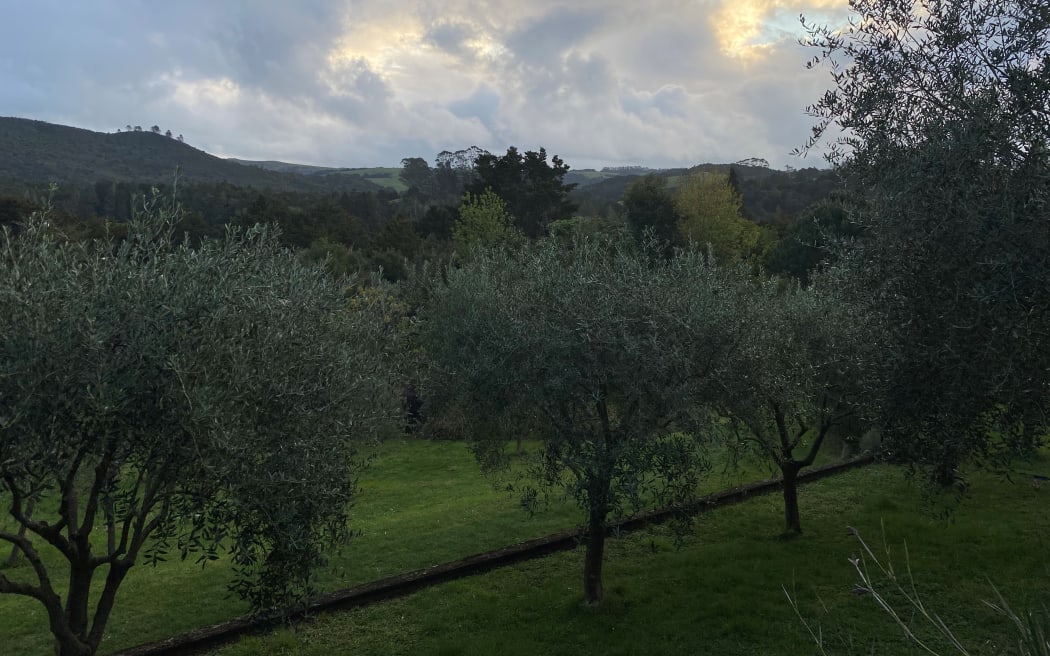
Peter is hoping for good sunshine this summer to produce high polyphenol levels.
Photo: RNZ/Leah Tebbutt

